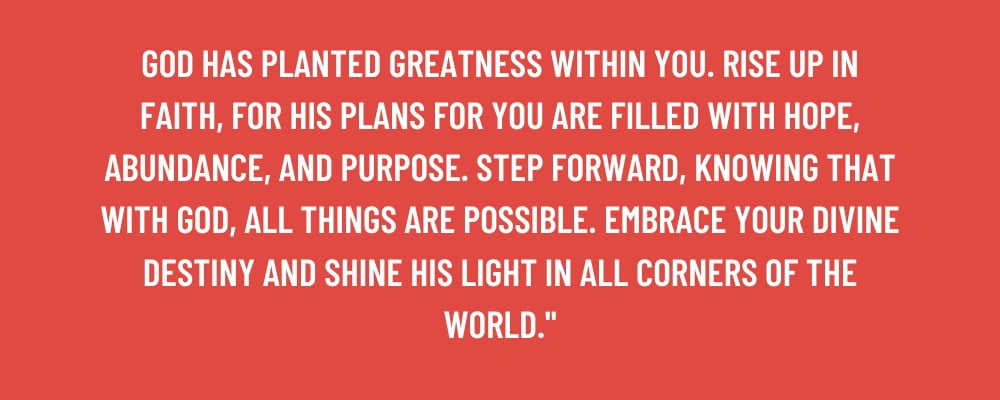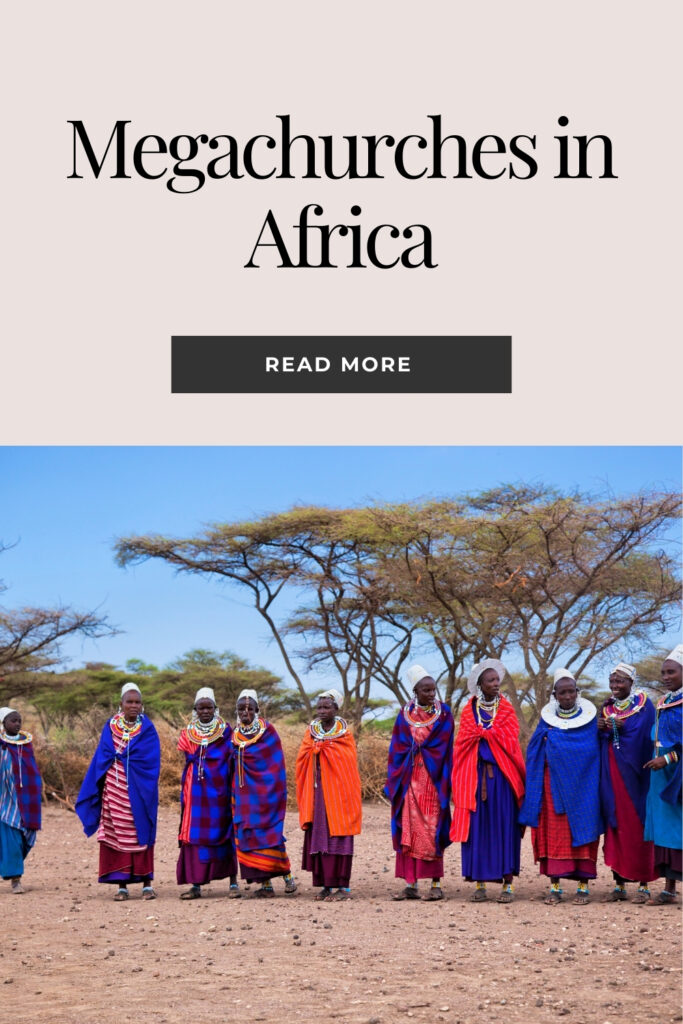No products in the cart.
Megachurches in Africa
This post contains paid and/or affiliate links. I make a small commission at no extra cost to you. Please see our Privacy Policy.
In contemporary society, megachurches in Africa have seen a big rise. They have a big impact on the cultural and spiritual life of the continent. These large churches draw millions of followers. They become key places for worship and community life.
The cultural and spiritual significance of megachurches in Africa is huge. They are known for their size, economic impact, and influence on religious practices. With their big congregations and impressive buildings, these churches symbolize faith and devotion.
The impact of megachurches in Africa is growing. They offer spiritual guidance and help with economic development. Through their business model, they create jobs, support housing projects, and do social work.
But, the rise of megachurches in Africa also has challenges. Their tax-exempt status raises questions about transparency and accountability. Some ideologies, like prosperity theology, can lead to gender inequality and raise doubts about their goals.
Despite these challenges, African megachurches are shaping the religious and cultural scene. Their growth, cultural significance, and spiritual impact make them important in their communities. We will explore their journey, notable examples, and future challenges.

The Business of Megachurches in Africa
Megachurches in Africa, especially in Nigeria, Uganda, and Ghana, are big players in the economy. They make millions through offerings, donations, and other sources.
Their economic impact is seen in many ways. They boost the local economy with their big congregations and the money their members give. This leads to more spending in the area, helping local businesses.
Megachurches in Africa have a unique role in the unregulated economy. They act as centers of exchange and commerce, touching many parts of society.
They also create employment opportunities, which helps fight unemployment. These churches hire many staff for operations, events, and services. This provides jobs and helps the economy grow.
These churches also help with housing and infrastructure. They work on social projects, offering affordable housing and supporting the community.
Economic Impact of Megachurches in Nigeria, Uganda, and Ghana
| Country | Economic Impact | Employment Generation | Housing and Infrastructure Development |
|---|---|---|---|
| Nigeria | Millions of dollars in revenue | Significant employment opportunities | Support for affordable housing initiatives |
| Uganda | Contributions to the cash flow of the local economy | Job creation and income generation | Investment in community infrastructure |
| Ghana | Stimulates consumer spending in the region | Vocational training and employment programs | Initiatives for sustainable infrastructure projects |
Controversies and Challenges
Megachurches in Africa face controversy over their tax-exempt status. They don’t have to pay taxes on their income or assets. This lack of transparency raises concerns about how funds are used and potential misuse.
Some megachurches promote prosperity theology, which links financial success to God’s favor. This can lead to gender inequality by reinforcing traditional gender roles. It also focuses too much on wealth rather than spiritual growth and helping others.
Another issue is the lack of regulations and accountability. Without clear rules, these churches might put their own interests before their followers and the community’s needs. This lack of regulations is a big challenge that needs to be solved to ensure transparency and responsible behavior.
“The tax-exempt status of megachurches in Africa raises concerns about the misuse of funds and potential exploitation. It is important for these churches to operate with transparency and adhere to regulations to maintain the trust of their followers.”
– Dr. Grace Muthoni, Religious Studies Scholar

The Impact of Gender Inequality
Gender inequality in some megachurches in Africa has big social and cultural effects. The push for traditional gender roles limits women’s roles and opportunities. This slows down progress towards gender equality and empowerment.
Reforms and Accountability
To fix the issues with megachurches in Africa, reforms and more accountability are needed. Setting up rules for financial transparency and responsible behavior would stop fund misuse and protect followers’ rights. It’s also key for these churches to rethink their teachings to support equality, inclusivity, and social justice.
Notable Megachurches in Africa
Africa has many big churches, each with its own special qualities and effects. These churches have drawn in lots of followers. They have also helped their communities a lot. Let’s look at some big churches in Africa:
| Church | Country |
|---|---|
| Deeper Life Bible Church | Nigeria |
| First Love Church | Ghana |
| Living Faith Church | Nigeria |
| Christ Embassy | Nigeria |
| The Lord’s Chosen Charismatic Revival Church | Nigeria |
| World of Life Bible Church | Nigeria |
| CRC Christian Church | South Africa |
| United Family International Church | Zimbabwe |
These big churches are big in their communities. They have special ways of worship and helping out. This has changed many lives.
Deeper Life Bible Church in Nigeria focuses on the Bible and teaching. First Love Church in Ghana works on spiritual growth and well-being. Living Faith Church, or Winners’ Chapel, is famous for its big hall and prosperity theology.
These churches offer spiritual help, support for those in need, and chances for people to show their talents and start businesses.
Christ Embassy in Nigeria is all about the Holy Spirit and has lively worship and healing events. The Lord’s Chosen Charismatic Revival Church is known for its lively worship and healing.
The World of Life Bible Church, CRC Christian Church, and United Family International Church are big in Nigeria, South Africa, and Zimbabwe. Each church has its own vision and values, making a big difference in their countries.
The Spread of Christianity in Africa
Christianity in Africa has a long and varied history, starting in the 1st century AD. The Ethiopian eunuch is one of the earliest converts, as told in the Book of Acts. This event marked the start of Christianity’s influence on the continent.
In the late 19th and early 20th centuries, Christianity really took off in Africa with the help of European missionaries. These missionaries worked hard to integrate Christianity into local cultures and languages, leading to the creation of indigenous churches and new Christian movements across Africa.
African Christianity has greatly influenced the global church. It has brought unique liturgies, music, and theological views. African churches have mixed traditional and Christian elements, making faith vibrant and dynamic.
“African Christianity shows the power of the Christian message. It proves that the gospel can grow in many cultures, enriching the world church.” – Dr. Sarah Johnson, Theological Historian.
African Christians have shaped the theology of Christianity. Their ideas have challenged and broadened traditional views, adding new insights to the global church.
Notable African Churches and Their Contributions
| Church | Country | Contributions |
|---|---|---|
| Deeper Life Bible Church | Nigeria | Focus on personal holiness and spreading the word |
| First Love Church | Ghana | Ministries for young people and new ways of worship |
| Living Faith Church | Nigeria | Teaches the prosperity gospel and helps the community |
| Christ Embassy | Nigeria | Reaches people worldwide through TV and healing services |
| The Lord’s Chosen Charismatic Revival Church | Nigeria | Focuses on healing and fighting spiritual battles |
| World of Life Bible Church | Nigeria | Offers training for discipleship and leadership |
| CRC Christian Church | South Africa | Welcomes people of all backgrounds and works in the community |
| United Family International Church | Zimbabwe | Teaches prophecy and values family |
These churches have made a big impact in their communities. They have helped African Christianity grow and develop.

Architectural Wonders of African Megachurches
African megachurches are not just places of worship but also architectural marvels. They have impressive auditoriums that can hold tens of thousands of people. The architectural features of these buildings show the diversity of religious expression in Africa. These churches are landmarks in their communities and shape the city’s architecture.
Table 6: Architectural Features of African Megachurches
Conclusion
Megachurches in Africa greatly impact the continent, both culturally and spiritually. They have grown fast, drawing millions of followers. These churches offer a sense of belonging and hope through their unique worship styles and charismatic leaders.
But these megachurches face challenges, too. There are concerns about how they use their money and the impact of their teachings. Some teachings, like gender inequality, can be harmful to society.
Despite these issues, megachurches are important in Africa. They provide a sense of community and support to many people, and their beautiful buildings add to the beauty of African cities.
As these churches grow, they must focus on being open and responsible. By doing so, they can make a positive difference in Africa’s culture and spirituality.
FAQ
What is the impact of megachurches in Africa?
Megachurches in Africa have experienced significant growth in recent years, impacting the continent’s cultural and spiritual landscape. They have become influential centers of worship and community life, attracting millions of followers.
How do megachurches in Africa contribute to the economy?
Megachurches in Africa, particularly in countries like Nigeria, Uganda, and Ghana, operate on a business model and generate millions of dollars in revenue through offerings, donations, and other sources. They have a significant economic impact by creating employment opportunities and contributing to housing and infrastructure development.
Are megachurches in Africa tax-exempt?
Yes, African megachurches are often tax-exempt and not required to disclose their financial accounts publicly. However, this lack of transparency has raised concerns about the proper usage of funds and potential exploitation.
What controversies surround megachurches in Africa?
Apart from the tax-exempt status, some megachurches in Africa promote prosperity theology, which can perpetuate gender inequality and spread damaging rhetoric. The lack of regulations and accountability for these churches is a significant challenge that needs to be addressed.
Can you provide examples of notable megachurches in Africa?
Yes, some notable megachurches in Africa include the Deeper Life Bible Church in Nigeria, the First Love Church in Ghana, the Living Faith Church in Nigeria, the Christ Embassy in Nigeria, The Lord’s Chosen Charismatic Revival Church in Nigeria, World of Life Bible Church in Nigeria, CRC Christian Church in South Africa, and United Family International Church in Zimbabwe.
How did Christianity spread in Africa?
The spread of Christianity in Africa can be traced back to the 1st century AD with the conversion of the Ethiopian eunuch mentioned in the Bible. However, it gained momentum in the late 19th and early 20th centuries when European missionaries arrived on the continent. These missionaries faced the challenge of adapting the Christian message to local cultures and languages, leading to the development of indigenous churches and Christian movements.
What are the architectural features of African megachurches?
Many African megachurches are architectural wonders, boasting impressive auditoriums with large capacities, accommodating tens of thousands of worshippers. The architectural features of these buildings vary, showcasing the diversity of religious expression in Africa.











